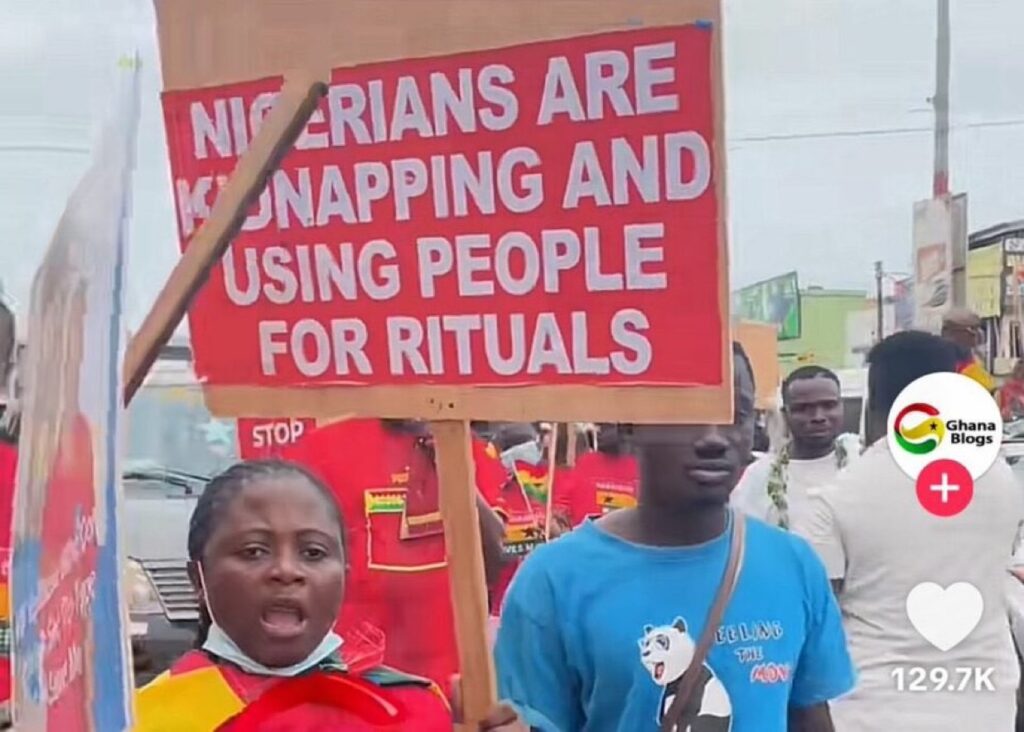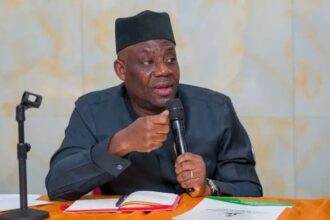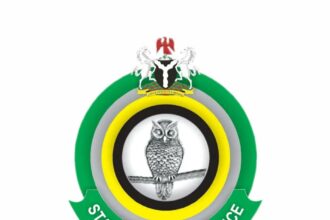
Some Ghanaians have taken to the streets in protest against Nigerians, accusing them of involvement in mass prostitution, ritual killings, and other crimes within Ghana. In a widely circulated video, a large crowd of demonstrators held placards with messages such as “Armed robbery and violent attacks must stop,” “Our health at stake due to mass prostitution,” “Who protects the right and freedom of Ghanaians,” “Nigerians are kidnapping and using people for rituals,” and “Our kids are getting missing because of Igbos.”
The protesters also displayed a photo of a man allegedly killed by a Nigerian in Accra. In the video, a woman in her 30s voiced strong opposition to the presence of Nigerians in Ghana, citing what she described as disorderly behavior. She said Nigerians “must go” because of how they conduct themselves in the country.
Another protester accused Nigerians, particularly Igbos, of dominating key markets and engaging in illegal activities. He claimed that Nigerians had spread to almost every village in Ghana and criticized the presence of a so-called Igbo king in the country. He alleged that they were taking over lands and promised that Ghanaians would reclaim control.
This recent development has drawn comparisons to the 1983 “Ghana Must Go” episode, when the Nigerian government under President Shehu Shagari expelled around two million undocumented immigrants, mostly Ghanaians. At the time, Shagari had said illegal immigrants should be arrested, tried, and deported without notice, asserting that anyone who breaks the law must face the consequences.
That event led to the popularization of a specific type of checkered bag used by the deported individuals, which became known as “Ghana Must Go,” symbolizing forced migration and exclusion. As of the time of this report, the Ghanaian government has not issued an official statement regarding the protests or its stance on the demand for Nigerians to leave the country.








